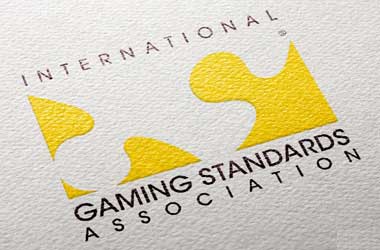 New Jersey’s online poker revenues have declined significantly in 2018. This came off as a surprise for many as New Jersey’s online poker market was expected to perform a lot better due to the fact that the Garden State joined the shared player pool with Delaware and Nevada in May 2018.
New Jersey’s online poker revenues have declined significantly in 2018. This came off as a surprise for many as New Jersey’s online poker market was expected to perform a lot better due to the fact that the Garden State joined the shared player pool with Delaware and Nevada in May 2018.
Reports suggest that the combined revenue of three online poker operators in the state dropped 12 percent from 2017.
Online poker saw revenues reach $24.3 million in 2017 but they fell to $21.3 million in 2018. iPoker sites in New Jersey hit $2 million per month 6 times during 2017 but not once did they hit the $2 million mark in 2018.
PokerStars, the biggest online poker website in the world struggled in New Jersey and so did partypoker which was voted the Poker Operator of the Year by EGR. The only iPoker site to have done reasonably well in 2018 was Caesars which runs the 888poker and Harrah’s brands.
It looks like the shared liquidity agreement hasn’t had the impact that the NJ gaming regulator would have liked. New Jersey will most likely not have an opportunity to explore and improve its shared liquidity agreement due to the fact that the Department of Justice (DOJ) has announced a new interpretation of the Wire Act.
What this means is that the DOJ has effectively banned shared liquidity or intra-state betting. Players from other states like Delaware and Nevada will soon be banned from accessing player pools in New Jersey and vice-versa. This is a blow to New Jersey who had hopes of expanding its player pool by bringing in Pennsylvania who is yet to launch its iGaming industry.
Access To New York Poker Market
New Jersey may have also set its sights for New York to join their shared player pool, but the deal seems to be off the table. The DOJ ruling may have already discouraged some states to join shared player pools like the ones in New Jersey.
Furthermore, New York just recently advanced a bill which looks like online poker will not be legalized anytime soon. The bill, called A00591, aims to conduct a study as to the lifestyles and profiles of gamblers in New York. The bill, when passed into law, would submit and publicize results around 2022.
With the DOJ ruling and A00591, the possibility of New York joining New Jersey is highly unlikely and it will be up to New Jersey to revive its online poker revenues on its own.

 United States
United States United Kingdom
United Kingdom















